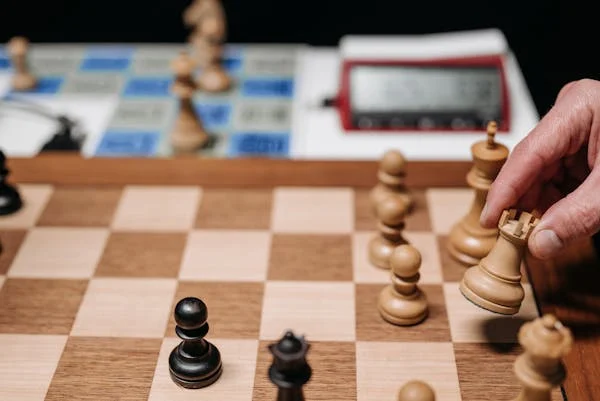If you’re in Portsmouth and looking to improve your chess skills, you might be wondering which academy is the best place to start. There are many names out there. Some sound traditional. Others claim to be new and digital. But when it comes to real growth, especially for beginners and intermediates, not all training is the same. This article is going to show you the top five chess coaching academies in Portsmouth—but with a catch.
Online Chess Training
Landscape of Chess Training in Portsmouth and Why Online Chess Training is the Right Choice
Chess has always been a part of British education and culture. Portsmouth, like many UK cities, has chess clubs, school events, and weekend tournaments. You’ll see flyers at libraries, maybe a table at a school fair, or hear parents talking about after-school chess clubs.
This is the world of offline chess coaching. It has history. It has charm. But it also has limits.
Offline coaching often means a group class, once a week, led by a single coach trying to manage 10 or 15 kids. Sometimes, stronger players are left bored. New learners are left confused. There’s no fixed system. No clear path. And definitely no way to check what you’re doing outside class.
This is where online chess training begins to shine.
Online training lets a student learn at their pace. They can pause. Rewatch. Practice right after a class. And most of all, they’re not bound to one room, one teacher, or one rigid schedule. They get structure. They get flexibility. And when done right, they get results faster.
This is what the chess world is moving towards—not because it’s new, but because it simply works better.
How Global School of Chess is the Best Choice When It Comes to Chess Training in Portsmouth
Now let’s talk about Global School of Chess. This is not just another coaching centre. It is an online-first academy, built to give each student a personalized chess journey.
What makes it better?
One, it has a system. Every student goes through a well-designed learning path. Whether you’re a total beginner who doesn’t know how knights move, or an intermediate who knows openings but loses in endgames, you get a clear map of what to learn next. There’s no randomness. No guesswork.
Two, it tracks progress. Every lesson is followed by practice problems. There are quizzes. There are game reviews. You don’t just learn something and forget. You’re tested. You’re trained. And you’re guided until it becomes second nature.
Three, it’s completely online. This is powerful. Students don’t waste time commuting. Parents don’t have to drive across town. And most importantly, learners can review sessions again and again, something offline centres just can’t offer.
Four, it offers expert coaching, anytime. The academy brings together experienced trainers, not just from one city, but from across the world. That means students in Portsmouth can learn from grandmasters, FIDE instructors, and top youth trainers without leaving home.
Five, it’s deeply human. You’re not just watching videos. You get live sessions, 1-on-1 feedback, and even a mentor who watches your progress. It’s online, but you feel like someone’s sitting beside you, helping you get better every week.
And finally—Global School of Chess is built for long-term growth. Whether your goal is to beat friends, join school teams, win tournaments, or just become a sharper thinker, this academy helps you build real skills, not just tricks.
Offline Chess Training
Let’s now look at the offline world—traditional chess coaching.
This is what many parents are used to. A local coach. A school club. Maybe a weekend group that meets in a church hall or community centre. The coach sets up a board, talks through a few games, maybe plays with each student once or twice, and the hour is over. It’s cozy. It feels warm. But there are cracks in the system.
Most offline coaching in cities like Portsmouth isn’t built for growth. It’s built to fill time.
You often see one coach juggling too many students. The stronger kids get all the attention. The weaker ones stay lost in the back. Sometimes you’ll find a really good coach—but they have no system. They teach from memory. They don’t follow any real path. It’s more storytelling than training.
And then there’s the structure. Or rather, the lack of it.
Offline academies rarely have proper levels or track your progress over time. You might attend lessons for six months and still not understand basic tactics like forks or pins. You could play ten games, win some by luck, lose others by mistakes—and never know why. Nobody explains your thought process. Nobody fixes your blind spots.
And when you miss a class?
Too bad. You’ve missed a key lesson, and you’re expected to just “catch up.”
Offline training often depends too much on who the coach is that day, what mood they’re in, and how many students show up. There’s no consistency. No replay button. No learning library.
In today’s world—where time, data, and structure matter—that just doesn’t work anymore.
Drawbacks of Offline Chess Training
It’s important to understand why offline training struggles. Let’s go deeper.
No Curriculum
The biggest problem with offline coaching is the absence of a clear path. You don’t know what comes next. There’s no beginner-to-advanced roadmap. The lessons jump around. One day you’re learning checkmates. The next day, openings. Then endgames. But there’s no logic behind the order. It’s random.
Now imagine if school worked this way—where a teacher covered multiplication one day, Shakespeare the next, and gravity the next, all in no particular order. Students would be confused. That’s exactly what happens in many chess classes today.
Poor Time Use
In a group class, you spend most of your time waiting. Waiting for the coach to finish explaining to someone else. Waiting for your turn to play. Waiting for feedback. That means 60 minutes of coaching time often gives you only 10 minutes of actual learning. The rest is spent idle.
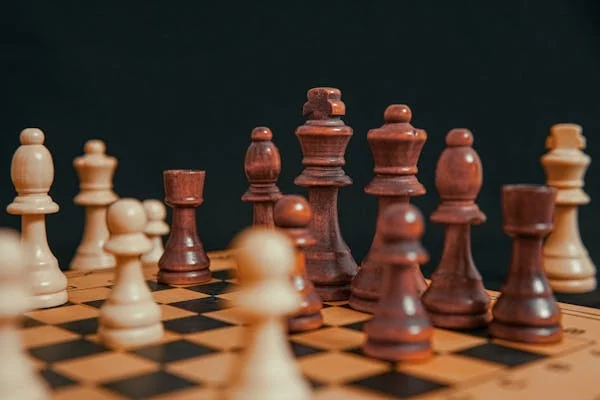
Compare that to an online platform like Global School of Chess, where every single minute of your time is productive. You’re learning, solving, practicing, and getting feedback all in real-time.
Missed Lessons = Lost Knowledge
Offline coaching doesn’t adapt. If you’re sick or on vacation and miss class, that lesson is gone. You won’t get it back. The coach might say, “We’ll do a quick recap,” but we both know it’s not the same.
Online systems let you watch the same lesson again. And again. And again—until you master it.
Lack of Personalization
This is a big one. Offline training can’t adapt to you. If you’re struggling with openings but strong in endgames, you still get the same class as everyone else. There’s no personal roadmap. No custom drills. No focused feedback.
This is where most students stagnate. They plateau early, not because they’re not smart—but because the training doesn’t adjust to their needs.
Best Chess Academies in Portsmouth
Portsmouth has a few options for chess lovers. But not all are made equal.
Some offer in-person coaching. Some focus on local clubs. A few offer online help. But when compared side by side, one thing becomes clear—Global School of Chess is in a class of its own.
Let’s look at the top five academies you might come across, and how they stack up.
Global School of Chess
This is the gold standard.
Global School of Chess is a fully online, deeply structured, and student-focused chess academy that works for players of all ages and skill levels. Unlike local clubs or informal lessons, it gives learners a clear path from absolute beginner to competitive player.
Here’s how:
A Clear, Level-Based System
Every student starts with an assessment. Based on that, they’re placed into a level—Starter, Learner, Builder, Thinker, or Expert. Each level has its own syllabus, designed with building blocks in mind. You don’t move on until your base is strong.
This means no more gaps. You’re not rushing through. You’re not stuck either. You grow, brick by brick.
Live Weekly Lessons + Recorded Backups
Each student attends regular live lessons. These sessions are dynamic, interactive, and led by expert coaches. Missed a class? No problem. Every session is recorded and saved in your dashboard. You can watch it again whenever you want.
This flexibility is priceless—especially for busy school schedules or unexpected changes.
Practical Training, Not Just Theory
You don’t just learn concepts. You apply them. After every lesson, there are exercises, puzzles, and real games to play. The platform gives immediate feedback. You’ll know what you did wrong and how to fix it.
One-on-One Feedback Loops
This is where Global School of Chess goes beyond others. Students get one-on-one guidance sessions to review games, ask questions, and plan their training. This personal attention changes everything. It turns learning from “just a class” into an actual journey.
Global Exposure, Local Comfort
Even though you’re in Portsmouth, you’re learning from world-class trainers across time zones. You also get to compete in friendly matches with students from other countries, all within a safe, moderated environment.
This builds not just skill—but confidence, sportsmanship, and global thinking.
The Best Coaches in One Place
The academy doesn’t rely on just one coach. It brings together some of the world’s best chess minds—FIDE Masters, International Masters, and seasoned youth trainers who’ve shaped champions in multiple countries.
Every coach is trained in how to teach online. They use the right visuals, the right examples, and the right pace for digital learners.
Affordable and Transparent
The platform offers pricing that is clear, fair, and full of value. Parents know exactly what they’re getting—and it’s often far more than what local coaching provides.
You don’t just get lessons. You get a full platform with assessments, reports, practice tools, and community events.
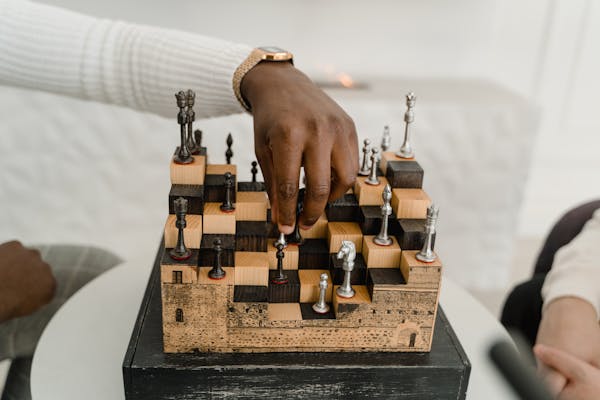
So whether your child is just starting or trying to break into the top of the school ladder, Global School of Chess gives them the tools, the support, and the system to get there.
Portsmouth Chess Club
Portsmouth Chess Club is one of the oldest names in the city when it comes to chess. It has been around for many years and has helped bring chess to the local community. The club meets regularly and organizes over-the-board games and tournaments.
The club environment is friendly and relaxed. It gives players a place to gather and play, mostly on weekday evenings. For adults and a few competitive juniors, it provides an opportunity to gain experience in actual board games. They also participate in local league matches.
However, Portsmouth Chess Club is not structured for learning. It is more of a playing ground than a training platform. There are no levels. No lessons. No curriculum. There are occasional tips and casual advice from stronger players, but this is not formal coaching.
There are also no dedicated programs for beginners, no feedback systems, and no customized support. Young students may feel lost if they don’t already know how to play.
Unlike Global School of Chess, which tracks every learner’s progress step-by-step, this club offers no way to measure growth. It’s great for friendly games—but not for real development.
Hampshire Junior Chess Association
Hampshire Junior Chess is a regional body that runs events and supports junior chess across Hampshire, which includes Portsmouth. They organize tournaments and sometimes hold coaching events for promising young players.
They have a few weekend training camps and may bring in titled players for special sessions. These are good chances to meet other young talents and play more games.
However, the problem here is inconsistency.
Sessions happen only a few times a year. There’s no weekly schedule. There’s no one-on-one training. And students often come from very different levels, making group sessions unfocused and hard to follow for beginners.
Also, since these are one-off events, there is no follow-up. Students attend, enjoy the day, and then go home. What they remember or apply depends entirely on them.
Compare that with Global School of Chess—where every student has a mentor, a plan, a training calendar, and support after every game. Hampshire Junior Chess may give a spark of motivation—but Global builds the whole fire.
Chess in Schools and Communities (CSC) – South Coast Program
CSC is a UK-based charity that promotes chess in state schools. They operate in various regions, including the South Coast area, which covers Portsmouth. Their mission is wonderful—introducing chess to kids who may not get access otherwise.
In Portsmouth, CSC works with a handful of local schools. They send instructors for weekly or biweekly sessions. The focus is on fun, inclusion, and basic skills. It’s often the first touchpoint with chess for many students.
The challenge, however, is depth. CSC is built for introduction, not advancement. Once a student learns how to move the pieces, the journey starts to slow down. There’s no step-by-step development plan. Students outgrow the program quickly if they want to get competitive or go beyond casual play.
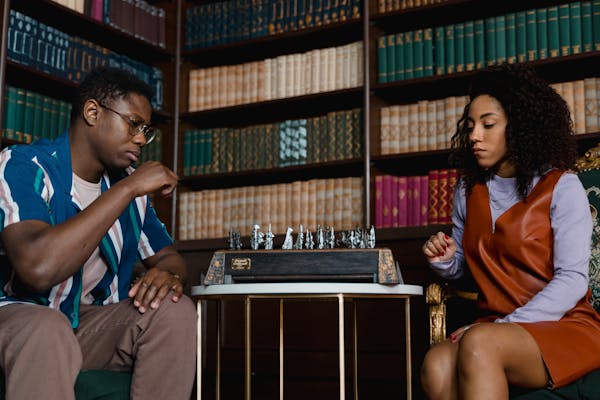
Another issue is availability. Not all schools participate. Not all students can join. And for those who do, sessions may be just 30 minutes long and mixed with other activities.
In contrast, Global School of Chess offers deep, focused, high-quality training from day one to mastery. Whether you want to learn checkmates or play in FIDE-rated tournaments, Global has everything in one place.
Southsea Chess Training Group
Southsea is a small neighborhood in Portsmouth, and this group meets in cafes or libraries. It’s run by a handful of chess enthusiasts who want to spread the love of the game.
Sometimes, they bring in experienced players to give casual coaching. They may also organize mini-tournaments or host friendly games between members. It’s more informal and community-driven than a professional academy.
This setup may be enjoyable for people who already play and want social interaction, but it’s not a serious training environment.
There are no class levels. No formal instructors. No digital tools. No practice exercises. It’s more of a hobby group than a teaching platform.
And that’s the key difference.
Global School of Chess is built like a modern school. Structured. Measured. Tested. Reviewed. Guided.
Southsea, like many small groups, is like a book club—it’s lovely, but it doesn’t replace real coaching.
Why Online Chess Training is the Future
We’ve talked about the limitations of offline coaching. Let’s now focus on why online training is not just better—it’s the future.
More Flexibility
Online chess training fits into your life. Students can take classes after school. Parents can schedule around exams or vacations. There’s no travel, no traffic, and no weather cancellations.
This means more consistency, more learning, and less stress.
Higher Quality Trainers
Offline coaching is limited to whoever lives nearby. If they’re good, you’re lucky. If not, you’re stuck. Online academies, on the other hand, can bring in the best coaches from around the world.
Global School of Chess does exactly that. They don’t just hire good players. They hire good teachers. People who know how to explain. Who care about growth. Who watch your games and give specific tips to improve.
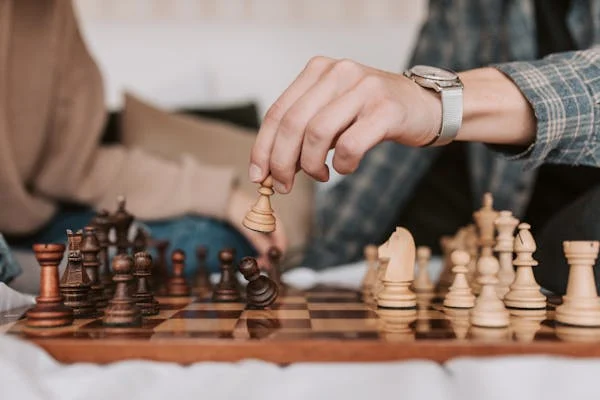
Better Tools
Online platforms offer interactive boards, instant replays, tactics trainers, and performance stats. These tools make learning faster and clearer. Students can solve puzzles with instant feedback. They can watch their own games and understand their mistakes.
No offline class can match that.
Learning at Your Pace
Everyone learns differently. Some need more time with basics. Others fly through openings but struggle with endings. Online systems let students learn at their own speed.
At Global School of Chess, students can go back to lessons. They can redo practice sets. They can slow down or speed up—whatever works best for them.
This freedom changes how students grow. It removes pressure. And it builds true confidence.
How Global School of Chess Leads the Online Chess Training Landscape (Expanded)
While many chess academies have tried to move lessons online, very few have transformed the online chess learning experience the way Global School of Chess has.
This isn’t just about delivering lessons over Zoom.
It’s about building an entire ecosystem around the student—one that merges education, technology, and mentorship into a single experience. And this approach doesn’t just benefit individual learners. It holds strategic lessons for education businesses, coaching institutes, and even B2B learning platforms.
A Business Built on Systems, Not Schedules
Most traditional chess academies—and honestly, most tutoring businesses—are built around schedules. They rely on fixed classes at fixed times, led by one coach at a time. This is fragile. When the coach is unavailable, the class collapses. If a student misses a session, the value is lost. Growth is slow. Dropouts increase.
Global School of Chess flipped that model.
It built a system-based structure, not a schedule-based one. Here’s how:
- Modular Curriculum: Lessons are broken down into bite-sized, level-specific modules that build up over time. This allows easy tracking and instant intervention when a student lags behind.
- Independent Learning Loop: Even without a coach present, the student can keep progressing—thanks to self-guided practice libraries, pre-recorded strategy walkthroughs, and targeted quizzes.
- Automated Progress Systems: Each student’s activities—lesson completion, practice performance, and gameplay stats—feed into a central dashboard. This powers alerts for coaches and custom tips for learners.
Strategic Insight: For any business aiming to scale online education, the lesson is this—build systems that make your service work even when you’re asleep. Don’t just replicate classroom training on video calls. Redesign it to be autonomous, adaptive, and always-on.
Coaching at Scale, Without Losing the Human Touch
Global School of Chess solved one of the biggest problems in online learning—scaling without losing personal attention.
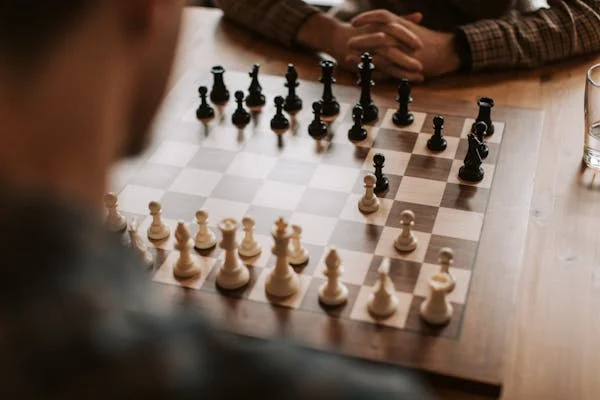
This is what holds most academies back. As soon as they grow, they stretch their top coaches too thin. The student-to-teacher ratio weakens. Feedback drops. Progress slows. Cancellations rise.
Here’s what Global did differently:
- Tiered Coaching Model: Top-tier instructors design content and lead live “anchor” sessions. Mid-level coaches monitor learner progress and host practice games. Entry-level trainers handle onboarding and FAQ support.
- Feedback Layering: Every learner gets feedback, but not always directly from the head coach. Instead, a layered review system ensures feedback flows efficiently through assistants and digital tools—without clogging up the system.
- Game Reviews with AI Assist + Coach Checkpoint: Players can submit their games for analysis. First, the AI tags the critical errors. Then a coach cross-checks and adds human insights. This hybrid model saves time, reduces error, and improves accuracy.
Actionable Advice for Training Businesses:
Build layered support. Your most senior people shouldn’t answer basic doubts. Create smart delegation systems—mix AI tools with junior staff to protect your top performers while ensuring each customer gets value.
Hyper-Customization Through Data
Every chess player is different. Some struggle with openings. Others collapse under time pressure. Some learn visually. Others by repetition. Global School of Chess understands that. That’s why its training isn’t just personalized—it’s hyper-customized.
Here’s how:
- Player Profile Engines: Every new student gets tagged based on strengths, weaknesses, and habits. This profile updates weekly and adapts the kind of lessons and drills the student receives.
- Behavioral Tagging: If a student always loses in the last 3 minutes, the system marks them as needing clock training. If they avoid trading queens, it highlights decision-making fears. These micro-patterns shape future coaching inputs.
- Skill-Lag Detectors: If a student is performing well in mid-game puzzles but weak in real games, the system alerts the coach to the skill transfer gap. This drives targeted interventions, not guesswork.
Business Insight:
Your content is only as good as your ability to match it to the right person at the right time. Use micro-data. Create content triggers. Build profiles that evolve. This makes your platform feel human—even when it’s not.
A Real Community, Not Just a User Base
Most online coaching platforms are lonely. A student logs in, watches a video, does an exercise, and leaves. No connection. No identity. No reason to stay.
Global School of Chess is different. It turns learners into members of a real chess tribe.
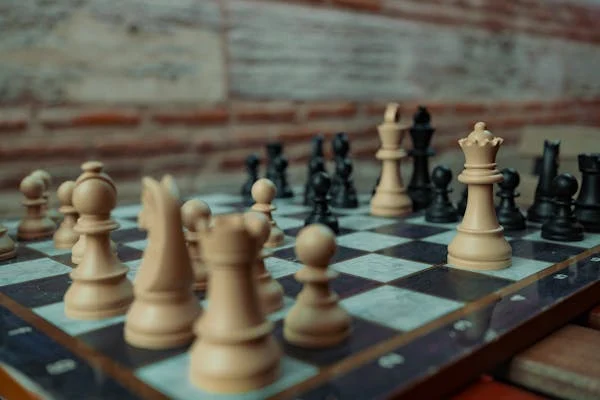
- Global Leagues and Teams: Students join international teams based on skill levels. They play weekly matches in a format that mirrors professional leagues. This builds pride, friendships, and deep retention.
- Student-Led Strategy Clubs: Advanced students get to lead virtual club discussions, organize mini-events, and even teach juniors. This promotes leadership, accountability, and mentorship from within.
- Community Tournaments with Commentary: The academy runs tournaments where students play while senior coaches give live commentary. This creates excitement and gives real-time learning from high-pressure games.
Tactical Takeaway for Education Brands:
Don’t just offer content. Offer identity. Create titles, groups, and recognition systems that give your users a sense of belonging. This is how loyalty is built.
Complete Ranking List for All Chess Coaching Academies in the United Kingdom
Wrapping It Up
In the world of chess coaching, especially in cities like Portsmouth, many players begin their journey full of excitement—but lose steam because their training environment doesn’t support real growth.
Some start with local clubs. Some go to weekend classes. Others attend school chess programs. And while these are good introductions, they rarely offer the structured, consistent, and personalized coaching that today’s students need to truly excel.

